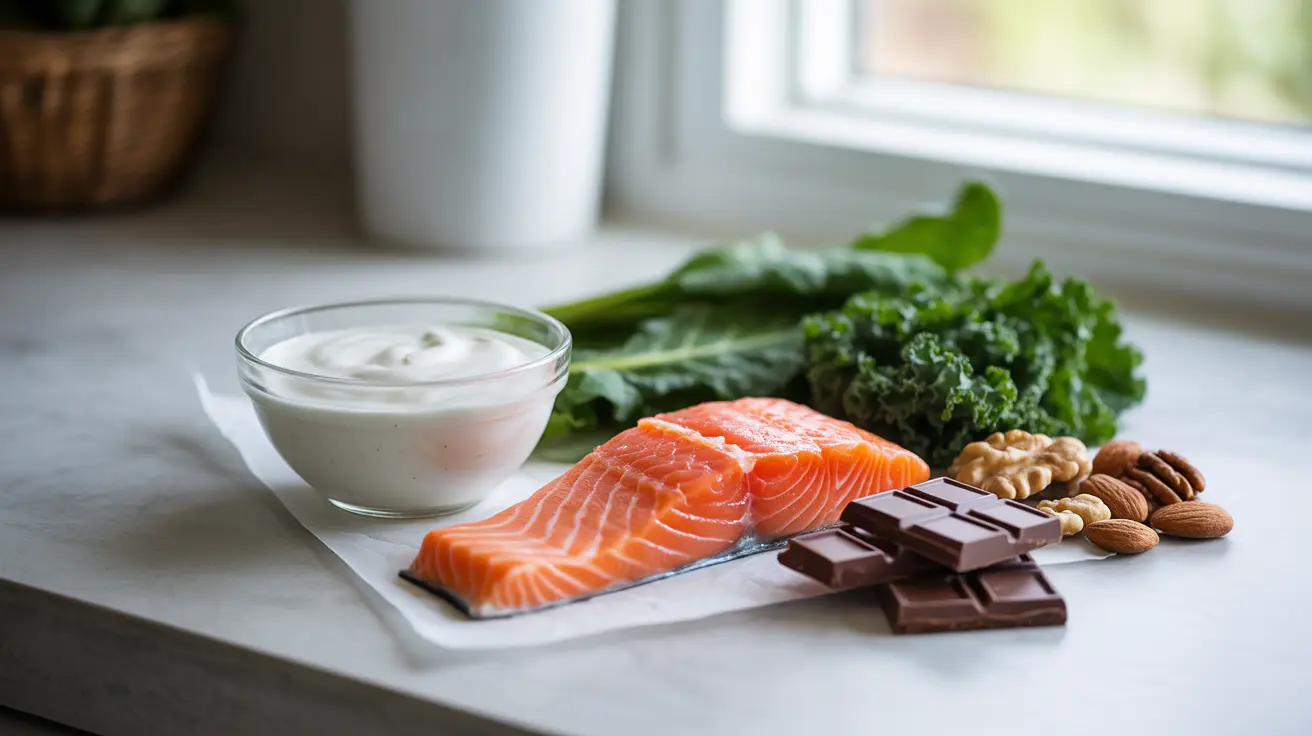Cold sores can be frustrating and painful, and understanding what triggers them is crucial for prevention. While the herpes simplex virus (HSV-1) is the root cause of cold sores, certain foods can potentially trigger outbreaks or make existing cold sores worse. This comprehensive guide explores the relationship between diet and cold sore occurrences.
Understanding the Food-Cold Sore Connection
The connection between food and cold sores primarily relates to how certain nutrients affect both the virus itself and your body's immune response. Some foods can create an environment that makes it easier for the virus to replicate, while others may help strengthen your body's natural defenses against outbreaks.
Foods That May Trigger Cold Sores
High-Arginine Foods
Arginine is an amino acid that can potentially stimulate cold sore outbreaks because the herpes virus needs it to replicate. Common foods high in arginine include:
- Nuts and seeds
- Chocolate
- Whole grains
- Peanut butter
- Some protein-rich foods
Acidic Foods
While acidic foods don't directly trigger cold sores, they can irritate existing cold sores and potentially delay healing. Foods to be cautious with during an active outbreak include:
- Citrus fruits
- Tomatoes
- Vinegar-based foods
- Spicy foods
- Carbonated beverages
Foods That Help Prevent Cold Sores
Lysine-Rich Foods
Lysine is an amino acid that may help prevent cold sore outbreaks by counteracting arginine. Beneficial foods include:
- Greek yogurt
- Fish
- Turkey
- Cheese
- Eggs
Immune-Boosting Foods
Supporting your immune system through diet can help prevent cold sore outbreaks. Focus on:
- Foods rich in Vitamin C
- Zinc-containing foods
- Probiotic-rich foods
- Foods high in antioxidants
- Leafy green vegetables
Dietary Strategies for Cold Sore Prevention
Creating a balanced diet that supports your immune system while minimizing trigger foods can help reduce cold sore occurrences. Consider maintaining a food diary to identify personal triggers and track outbreak patterns.
Environmental and Lifestyle Factors
While diet plays a role in cold sore outbreaks, it's important to consider other triggers such as:
- Stress
- Sun exposure
- Lack of sleep
- Hormonal changes
- Physical illness
Frequently Asked Questions
What foods are known to trigger or worsen cold sores?
Foods high in arginine, such as nuts, chocolate, and whole grains, can potentially trigger cold sores. Additionally, acidic and spicy foods may irritate existing cold sores and slow healing.
Can eating foods high in arginine cause cold sore outbreaks?
Yes, foods high in arginine can potentially trigger cold sore outbreaks because the herpes virus requires arginine for replication. However, individual responses vary, and not everyone will experience outbreaks from consuming these foods.
Which foods help prevent cold sores or reduce how often they occur?
Foods rich in lysine (such as dairy products, fish, and poultry) and immune-boosting foods (including fruits, vegetables, and probiotic-rich foods) may help prevent cold sores and reduce their frequency.
Are acidic foods harmful to active cold sores and should they be avoided?
Yes, acidic foods can irritate active cold sores and potentially delay healing. It's best to avoid citrus fruits, tomatoes, and other acidic foods while you have an active cold sore.
How do environmental and lifestyle factors compare to diet in causing cold sore flare-ups?
While diet can influence cold sore outbreaks, environmental and lifestyle factors often play a more significant role. Stress, sun exposure, lack of sleep, and illness are typically more powerful triggers than dietary factors alone.




